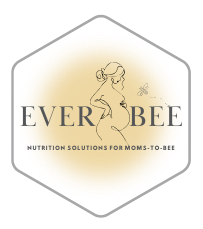A postpartum nutritionist, or dietitian, is a trained professional who will be able to help guide Mama through her journey to reach her health goals. Nutrition during this time period is going to be critical due to the body’s recent traumatic and intense transition. While much focus is put on the body’s needs during the pregnancy stage, gaps exist within the postpartum period. Postpartum nutrition refers to the dietary needs required for a woman after giving birth. This period, known as the postpartum period, typically covers the first six weeks after childbirth but can extend up to a year or more as the body recovers and adjusts. Proper nutrition during this time is crucial for healing, energy, and overall well-being.

Understanding Postpartum Nutrition
What is Postpartum Nutrition?
Postpartum nutrition is critical due to the body’s recent traumatic and intense transition. While much focus is put on the body’s needs during the pregnancy stage, gaps exist within the postpartum period. Postpartum nutrition refers to the dietary needs required for a woman after giving birth. This period, known as the postpartum period, typically covers the first six weeks after childbirth but can extend up to a year or more as the body recovers and adjusts. Proper nutrition during this time is crucial for healing, energy, and overall well-being.
Common Nutritional Deficiencies Postpartum
After mom gives birth, many issues can arise during the postpartum phase. Nutrition deficiencies are linked to several complications; having a postpartum nutritionist can decrease the likelihood of these deficiencies occurring. Common deficiencies include:
- Iron: Essential for replenishing blood lost during childbirth.
- Calcium: Important for bone health, especially if breastfeeding.
- Vitamin D: Supports immune function, mood regulation, and bone health.
- Omega-3 Fatty Acids: Crucial for brain health and mood regulation.
- B Vitamins: Aid in energy production and mood stabilization.
The Role of Nutrition in Postpartum Recovery
Nutrition plays a vital role in postpartum recovery. It helps in:
- Healing Tissues: Nutrients like protein and vitamin C are essential for repairing tissues and healing wounds.
- Energy Levels: Proper nutrition ensures sustained energy levels, which is crucial for new mothers coping with the demands of a newborn.
- Mental Health: Nutrients such as omega-3 fatty acids and B vitamins are known to support mental health and reduce the risk of postpartum depression.
The Role of a Postpartum Nutritionist
What Does a Postpartum Nutritionist Do?
A postpartum nutritionist really should hold the credentialing of Registered Dietitian nutritionist. The difference between a dietitian and a nutritionist can be found here: eat right pro. Ultimately, the term dietitian holds a set of standards that nutritionists do not have. Anyone can call themselves a nutritionist, but not everyone can call themselves a Dietitian. The postpartum nutritionist (or dietitian) is a specialist trained to provide nutritional guidance and support to new mothers. They assess individual nutritional needs, create customized meal plans, and offer ongoing support to ensure optimal health and recovery while reaching the goals you set for your health.
Benefits of Hiring a Postpartum Nutritionist
The benefits of hiring a postpartum nutritionist include:
- Personalized Nutrition Plans: Tailored to meet individual health needs and preferences. If baby has issues such as a milk allergy, a postpartum nutritionist can tailor a meal guide to fit your needs.
- Support for Breastfeeding: Dietitians can provide guidance on maintaining an adequate milk supply, meeting the nutritional demands of breastfeeding, and meeting one’s own nutritional goals.
- Mental Health Support: Nutritional strategies to support emotional and mental well-being.
- Weight Management: Safe and effective plans for returning to pre-pregnancy weight can be difficult during this time while dealing with your new role as mama.
How They Differ from General Nutritionists
While general nutritionists have a basic understanding of postpartum needs from lifecycle nutrition, they do not have the specialized training or experience that postpartum mothers go through. Postpartum nutritionists specialize in the unique needs of new mothers. They have a deeper understanding of the physiological changes that occur after childbirth and the specific nutritional requirements during this period.
Challenges Addressed by Postpartum Nutritionists
Physical Recovery After Childbirth
Childbirth is a physically demanding process, and recovery can vary significantly from one woman to another. Postpartum nutritionists help address:
- Tissue Repair and Healing: Through nutrients such as protein, vitamins A, C, and E, and zinc that promote cellular repair and reduce inflammation.
- Energy Restoration: By recommending foods that provide sustained energy, allow for adequate nutrition throughout the day, and balance foods you love with what you need.
- Anemia and Blood Loss: Through iron-rich diets are going to be crucial during the postpartum period, supplementation can cause gastrointestinal discomfort. Working with a postpartum nutritionist can help guide you to avoid iron supplements as much as possible
Breastfeeding and Nutritional Needs
Breastfeeding mothers have increased nutritional demands to ensure both their health and the health of their baby. Postpartum nutritionists provide guidance on:
- Maintaining Milk Supply: With a diet rich in fluids, proteins, and healthy fats.
- Preventing Nutrient Depletion: By ensuring adequate intake of vitamins and minerals.
- Addressing Dietary Restrictions: For mothers and babies with food sensitivities or allergies.
Personalized Nutrition Plans
Customized Meal Plans
Postpartum nutritionists create meal plans that are:
- Tailored to Individual Needs: Considering dietary preferences, allergies, and cultural practices.
- Balanced and Nutritious: Incorporating a variety of food groups to ensure comprehensive nutrition.
- Easy to Prepare: Suitable for busy new mothers.
Addressing Specific Health Concerns
Postpartum nutritionists also address specific health concerns such as:
- Gestational Diabetes: Providing guidance on managing blood sugar levels.
- Thyroid Disorders: Offering dietary strategies to support thyroid function.
- Weight Management: Helping mothers achieve a healthy weight post-pregnancy.
Balancing Nutritional Needs with Family Demands
One of the challenges new mothers face is balancing their nutritional needs with the demands of family life. Postpartum nutritionists help by:
- Creating Family-Friendly Meals: That are nutritious for the mother and appealing to the entire family.
- Offering Practical Advice: On meal prep and time management.
- Providing Support: To ensure mothers prioritize their health amidst family responsibilities.
Finding the Right Postpartum Nutritionist
Qualifications and Credentials to Look For
When searching for a postpartum nutritionist, consider:
- Relevant Certifications: Such as Registered Dietitian (RD) or Certified Nutrition Specialist (CNS).
- Experience with Postpartum Clients: Look for specialists who have worked extensively with new mothers.
- Holistic Approach: Those who consider mental, emotional, and physical health.
Questions to Ask a Potential Nutritionist
- What is your experience with postpartum nutrition?
- Can you provide references or testimonials from previous clients?
- How do you tailor your plans to individual needs and preferences?
- What kind of support can I expect throughout our work together?
Where to Find Postpartum Nutritionists
- Professional Associations: Websites of organizations like the Academy of Nutrition and Dietetics.
- Healthcare Providers: Recommendations from obstetricians, midwives, or pediatricians.
- Online Directories: Websites that list qualified nutritionists by specialty and location.
Final Thoughts on the Importance of Postpartum Nutritionists
Investing in the expertise of a postpartum nutritionist can make a significant difference in a mother’s postpartum journey. By addressing nutritional needs and providing tailored support, these specialists help mothers recover more effectively, feel healthier, and enjoy motherhood to the fullest. Find more postpartum information on EverbeeNu
